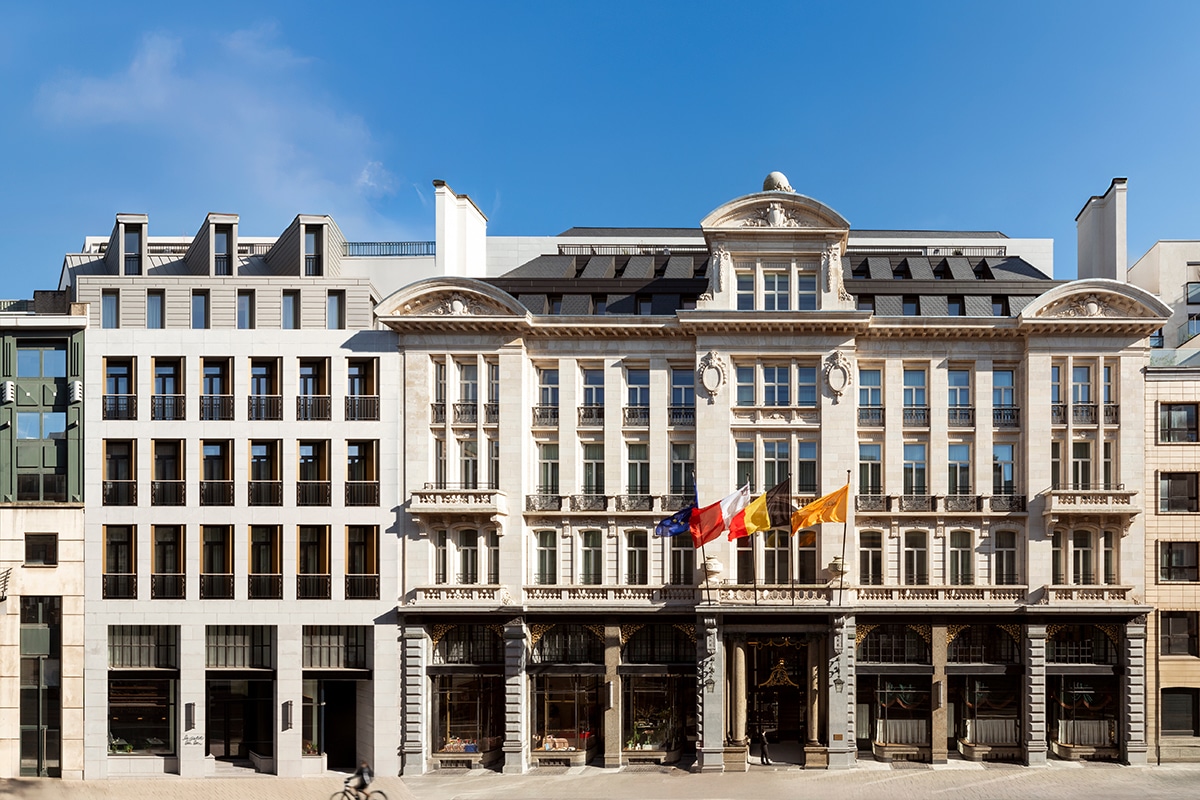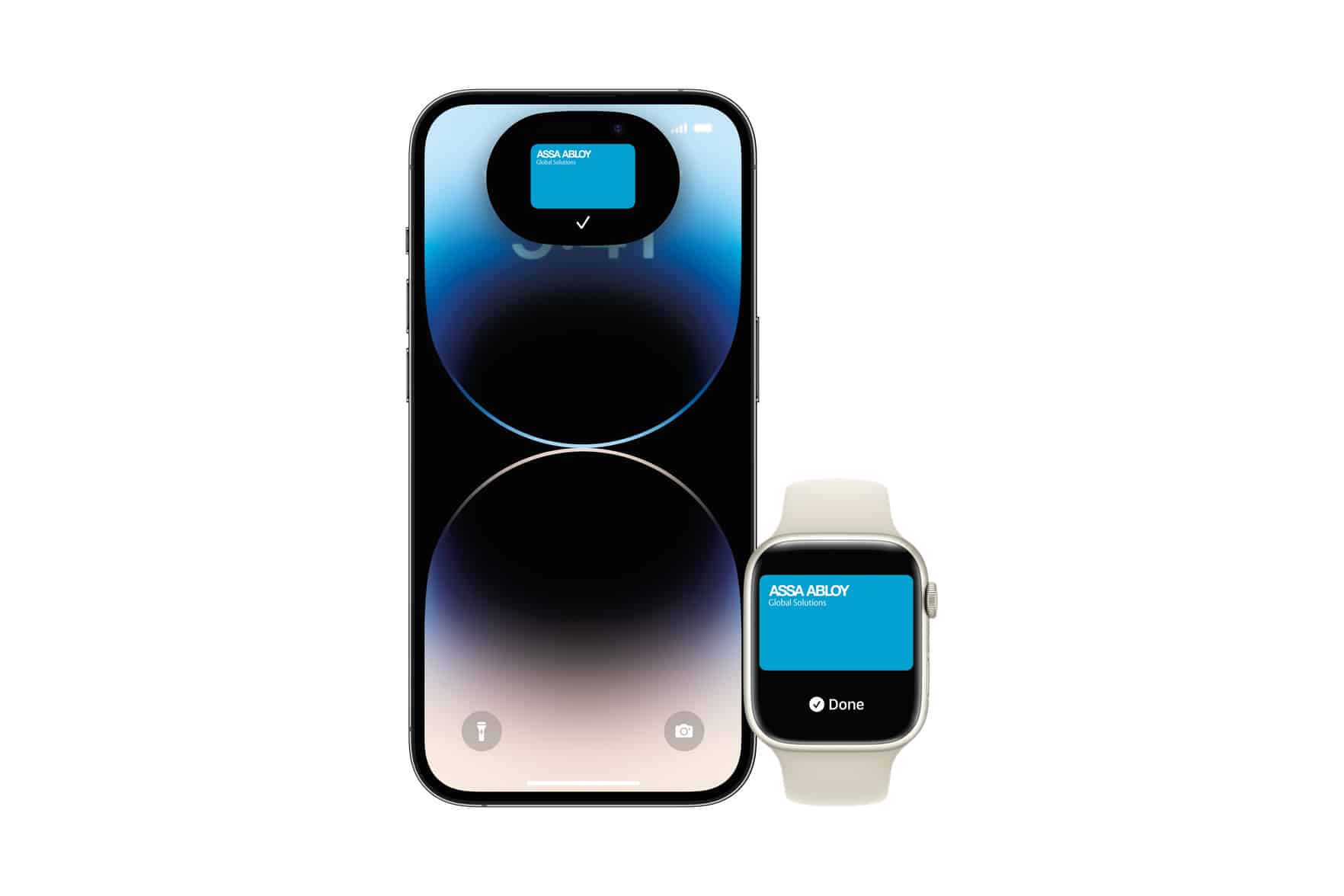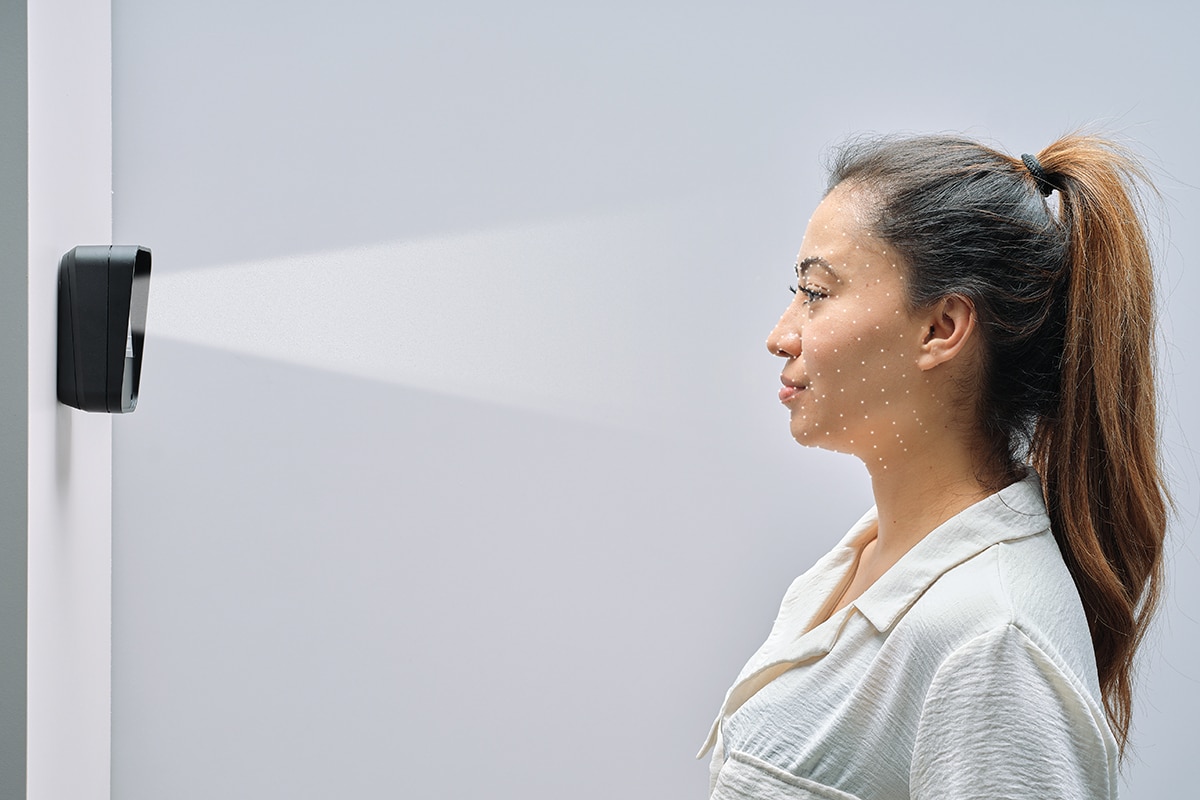
‘Hygiene and sustainability go hand in hand’
Hygiene as a foundation in hospitality
Washing hands. Once ‘just’ a matter of course, today a priority. Indeed, the corona pandemic has raised that bar a little higher. In hotels, restaurants, cafés and soup kitchens, hygiene is seen as the foundation more than ever. But how do you combine maximum protection against bacteria with responsible water and energy consumption? Sanitary specialist Delabie has the answer.
Since COVID-19, we wash our hands much more and also longer. Unfortunately, this also has its effect on the amount of water used. Because those who just let the water flow while carefully lathering their hands unnecessarily waste a lot. In public areas, this amounts to up to 60 litres per day, per person, Delabie estimates. Choosing between sustainability and hygiene is really not an option, investing in sanitary facilities that combine both is a must. “Electronic taps play a key role in this,” points out Svea Wagemans of Delabie. “They close automatically a few seconds after use, without the need for physical contact. Bacteria have no chance of spreading and the water does not simply flow away.”
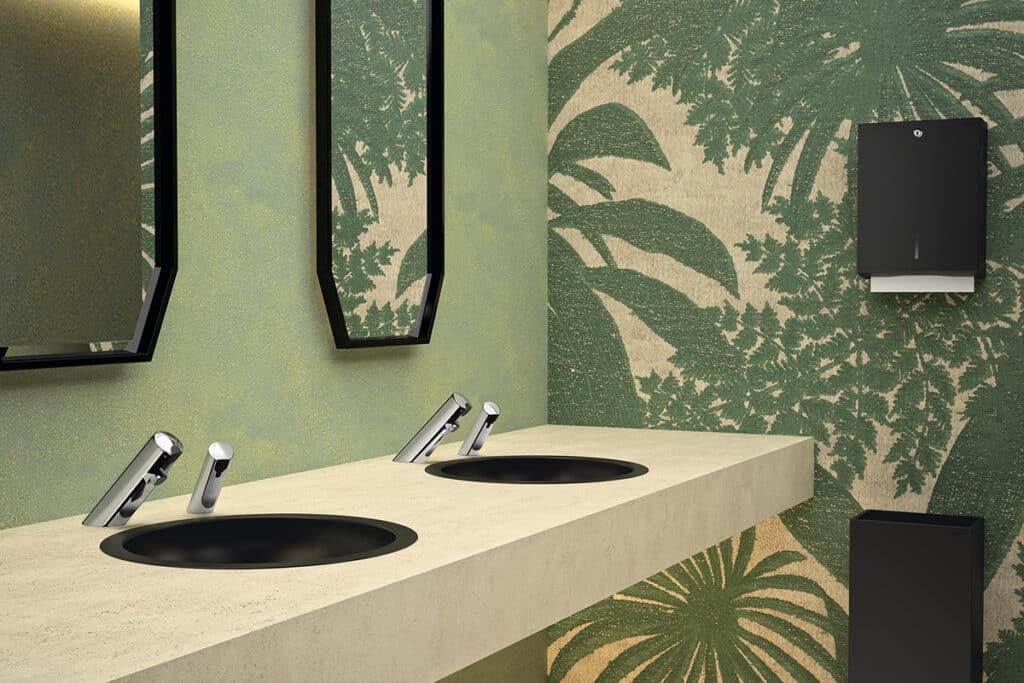
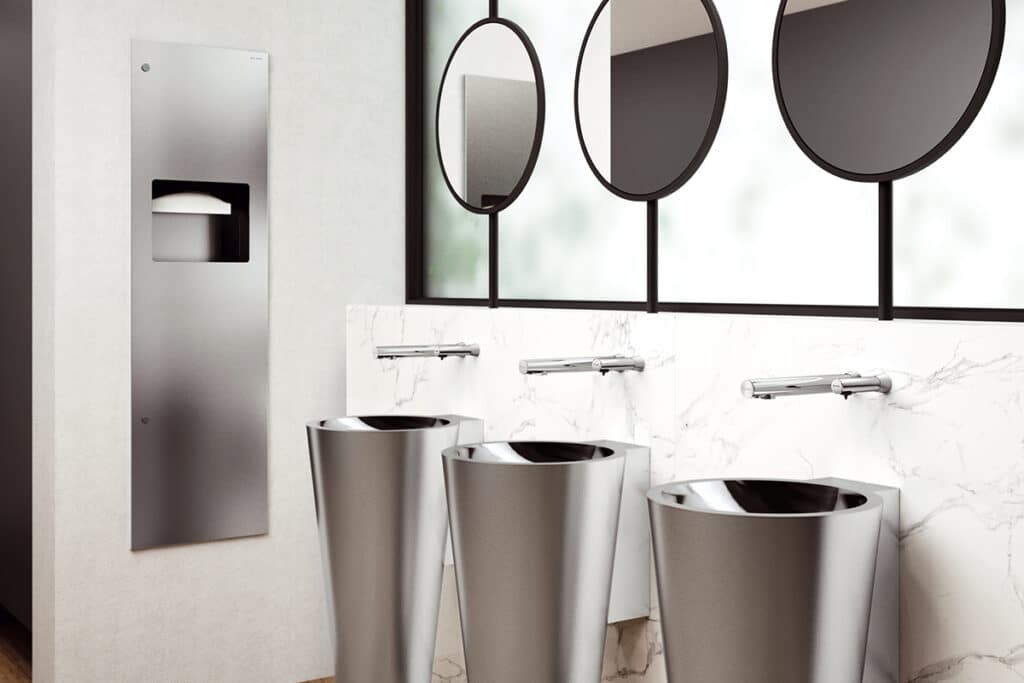
Automatic rinsing
Stagnant water is also a problem. Wagemans: “Stagnant water is the ideal breeding ground for pathogenic bacteria. Hotel rooms sometimes stand empty for a while, sanitary areas may not be used every day. To avoid stagnant water for too long, we equip many of our models with a periodic flushing function. This allows the water to be checked automatically every twenty-four hours after the last use.”
Saving water
Hygiene and sustainability can no longer be seen separately. “Through clever design, you save up to ninety per cent water with our electronic and self-closing taps,” Wagemans calculates. “Having the tap automatically close during soaping is just one intervention, we also limit the flow rate to three litres per minute instead of the usual nine litres per minute. Hotels thus meet the strictest hygiene standards while achieving excellent environmental performance. And that is becoming increasingly important in new construction and renovation projects.”
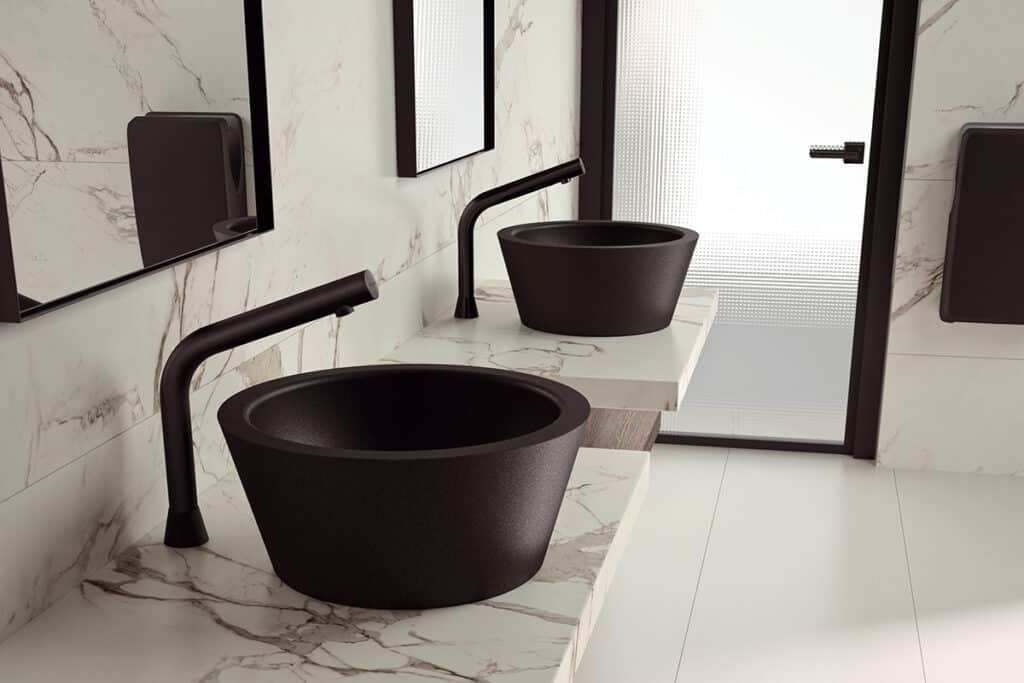
Hospitality in a new era
The future of sanitation is clear, after all, so are the expectations of hotel guests. They want hygienic and safe solutions but, at the same time, they want a hotel to use water and energy sustainably and responsibly. So investing in non-contact and water-saving solutions is a must. Design and efficiency go hand in hand, both with the BINOPTIC basin tap that fits perfectly into a stylish bathroom interior and with a TEMPOMATIC 4 that serves in a lobby toilet, for example.
Washing and drying
A detail often overlooked, but not at Delabie: drying is at least as important as washing. More than that, it is the crucial capstone in the entire hygienic process. Wagemans: “That's why we offer towel holders and dividers in bacteriostatic stainless steel. This is not only hygienic, it is also easy to clean. These and other accessories complete the image and experience for guests. And that, in turn, benefits operations.”
Heeft u vragen over dit artikel, project of product?
Neem dan rechtstreeks contact op met Delabie.
 Contact opnemen
Contact opnemen

